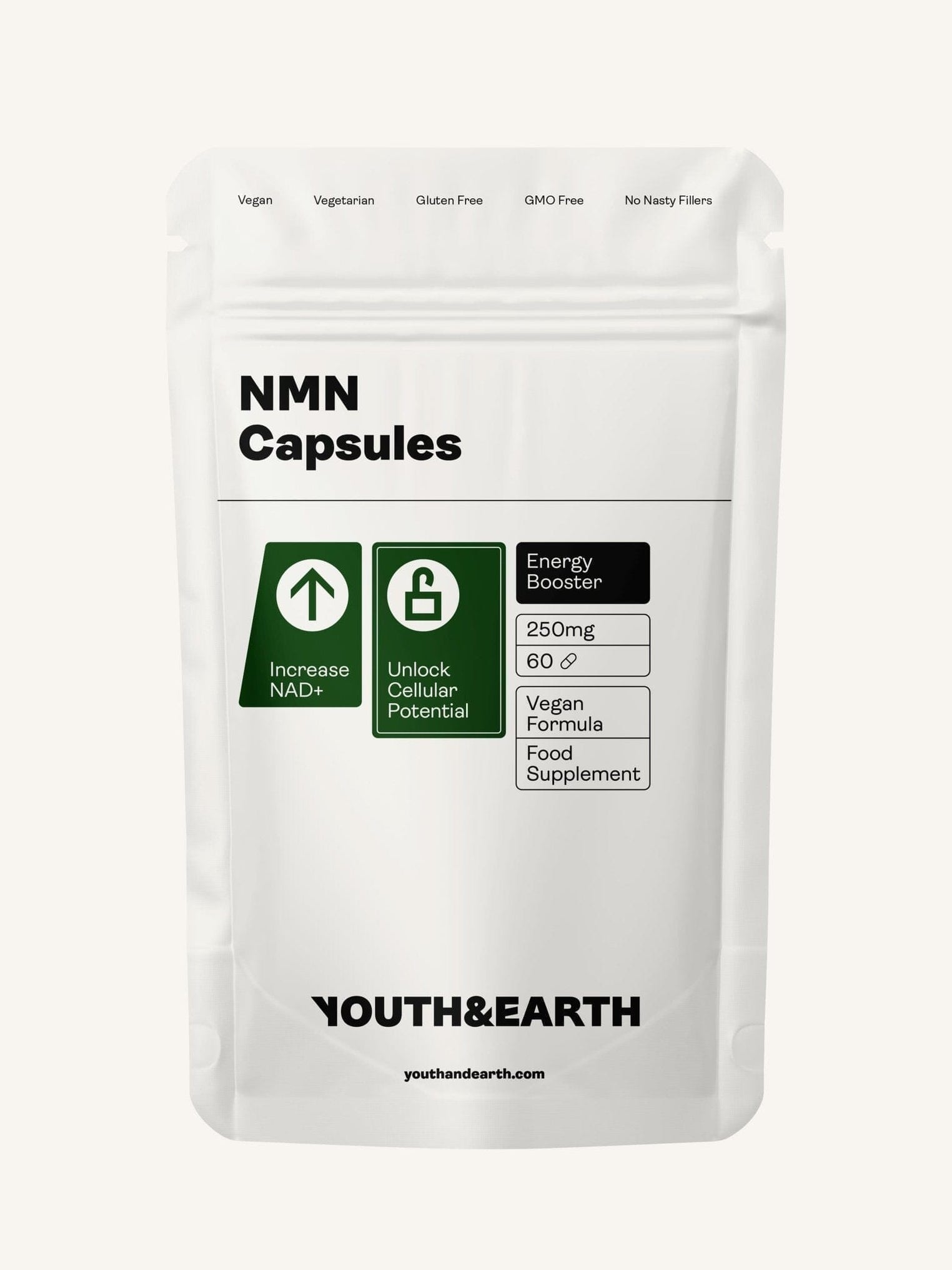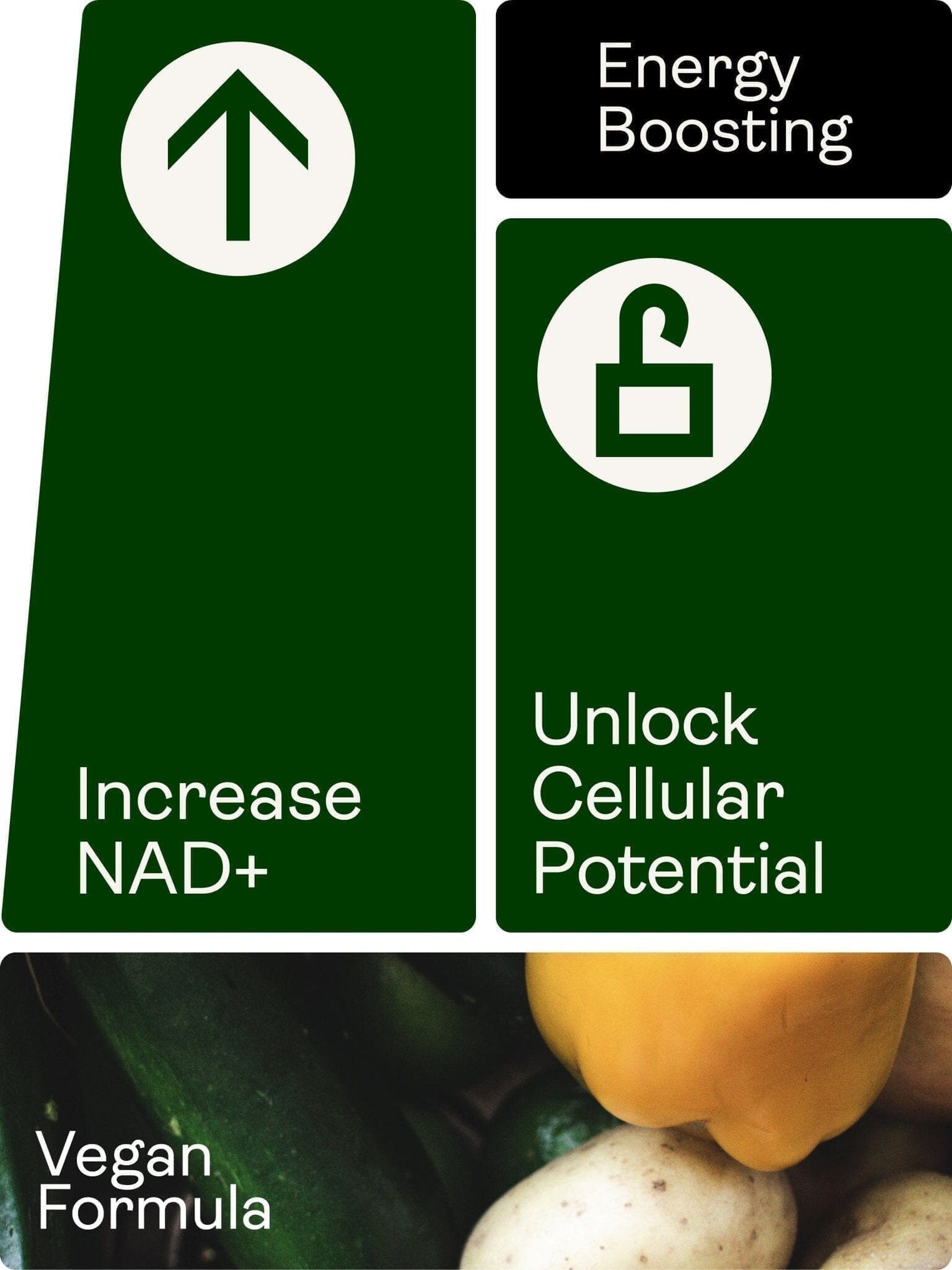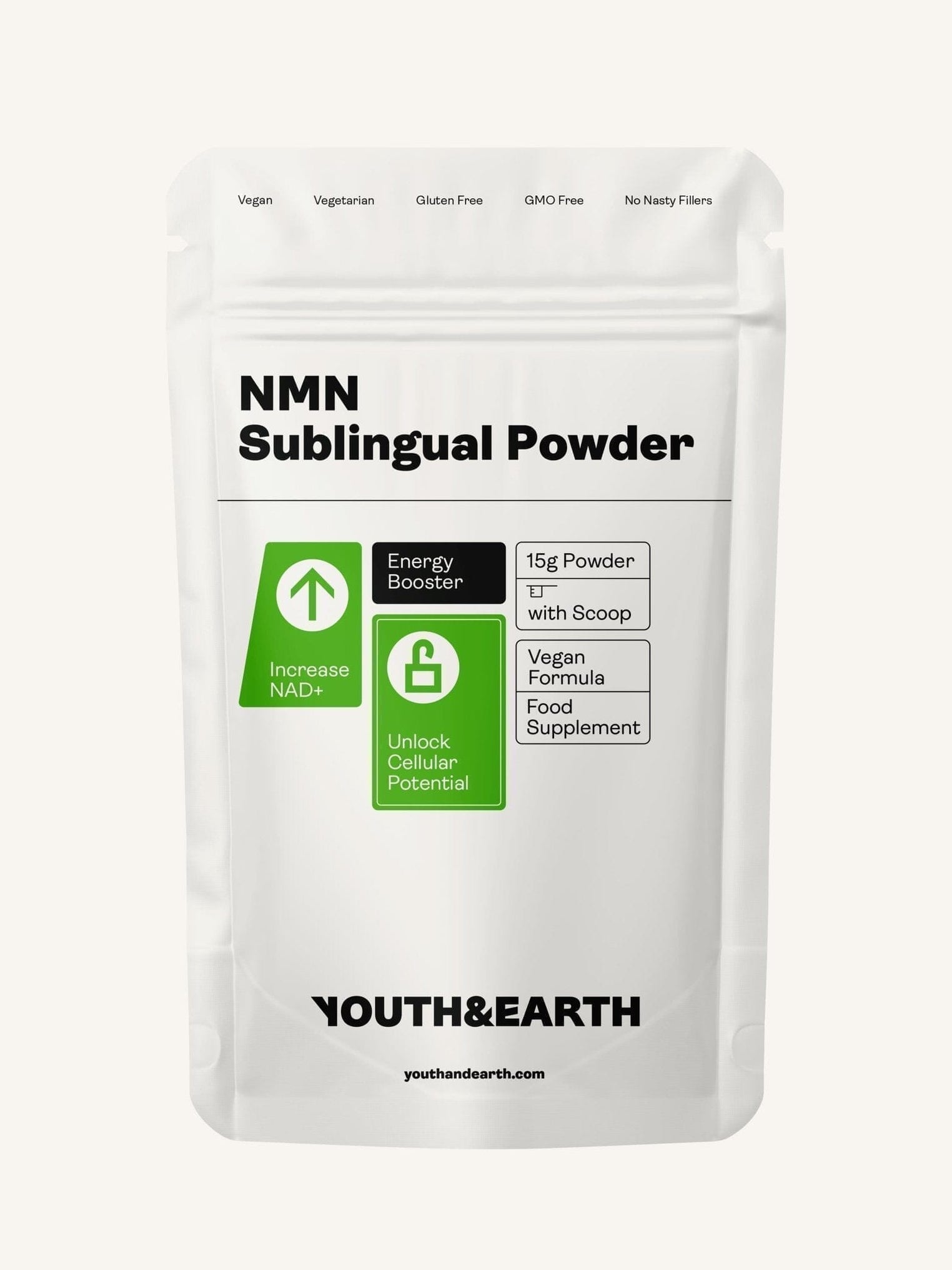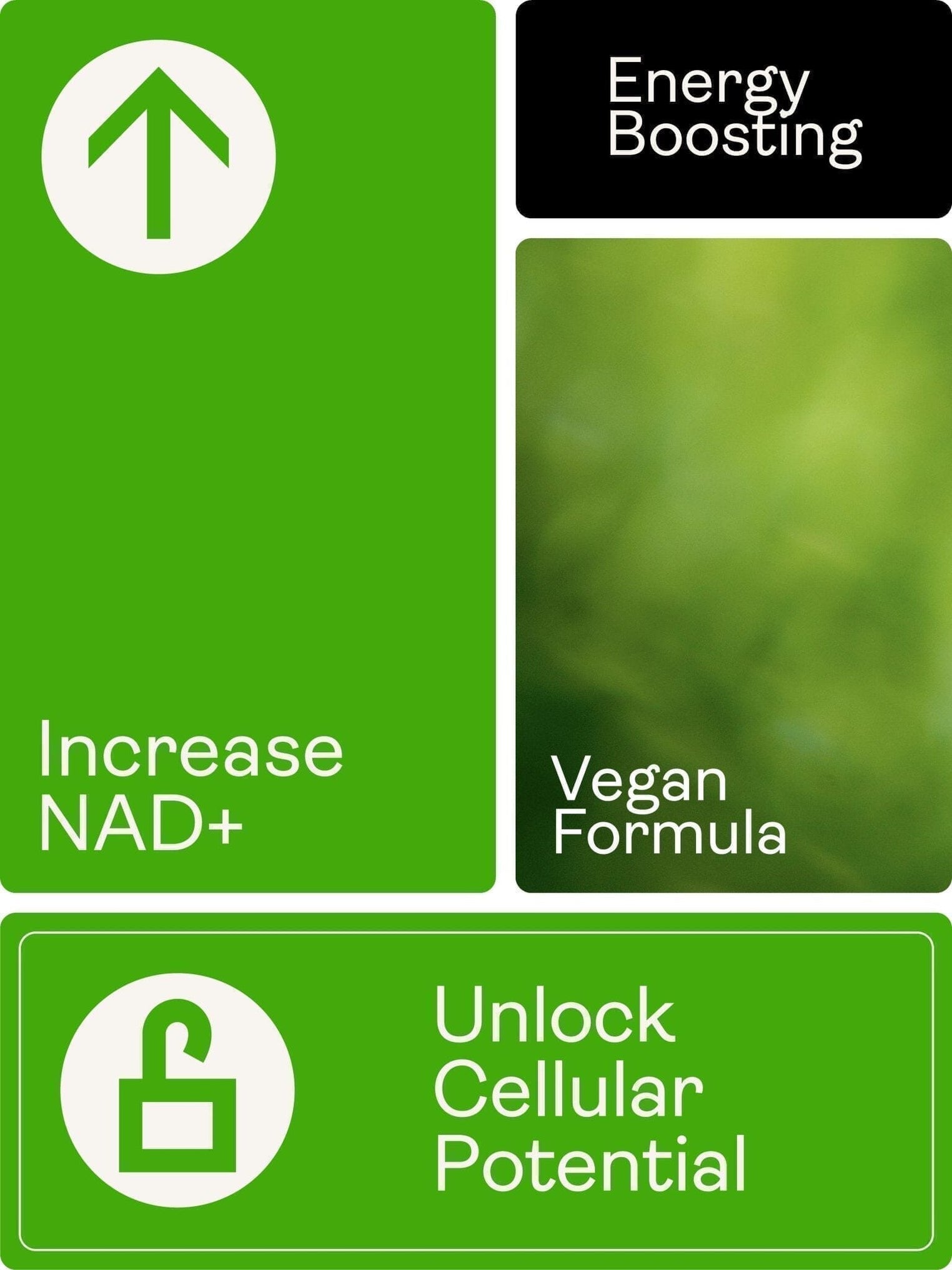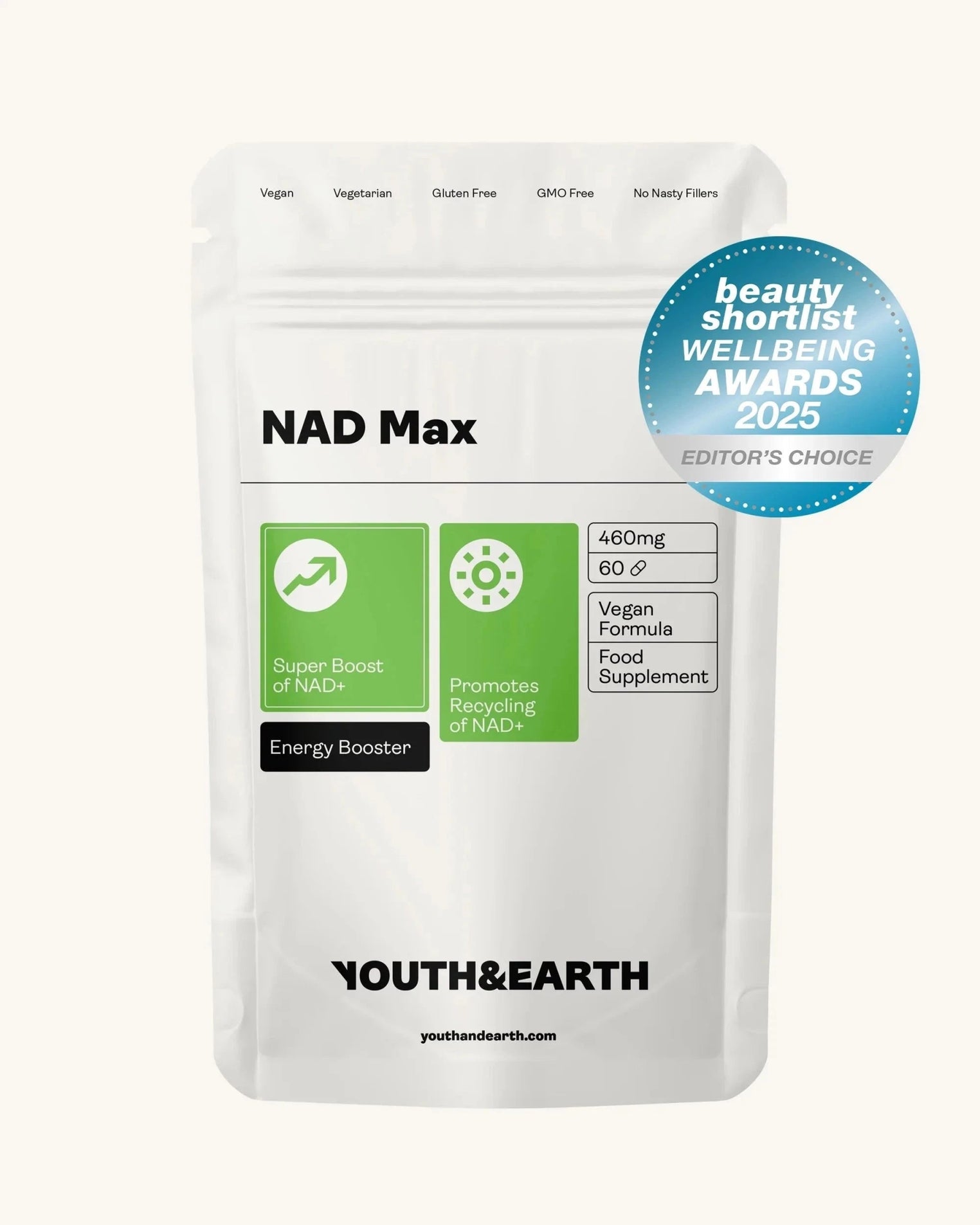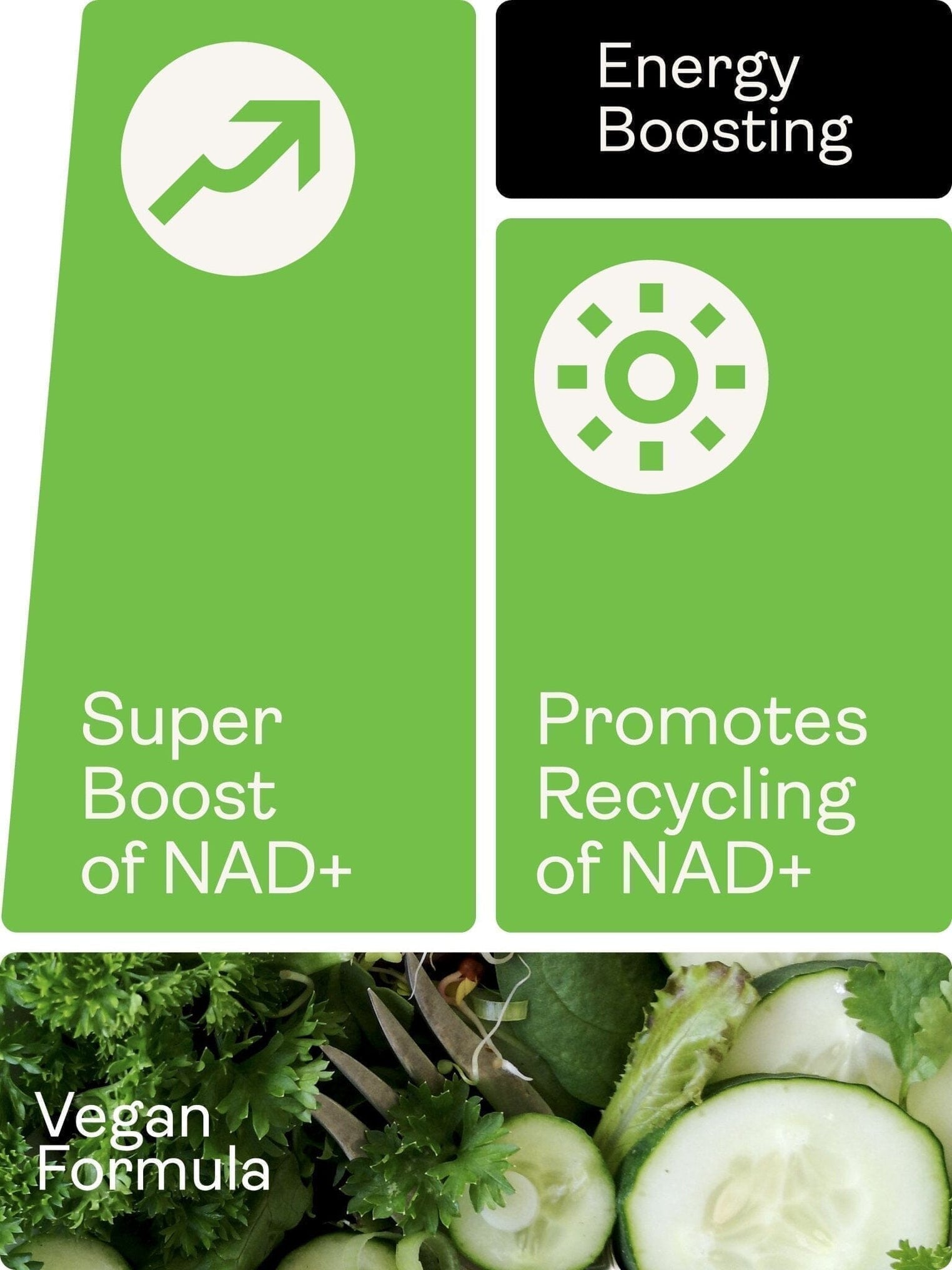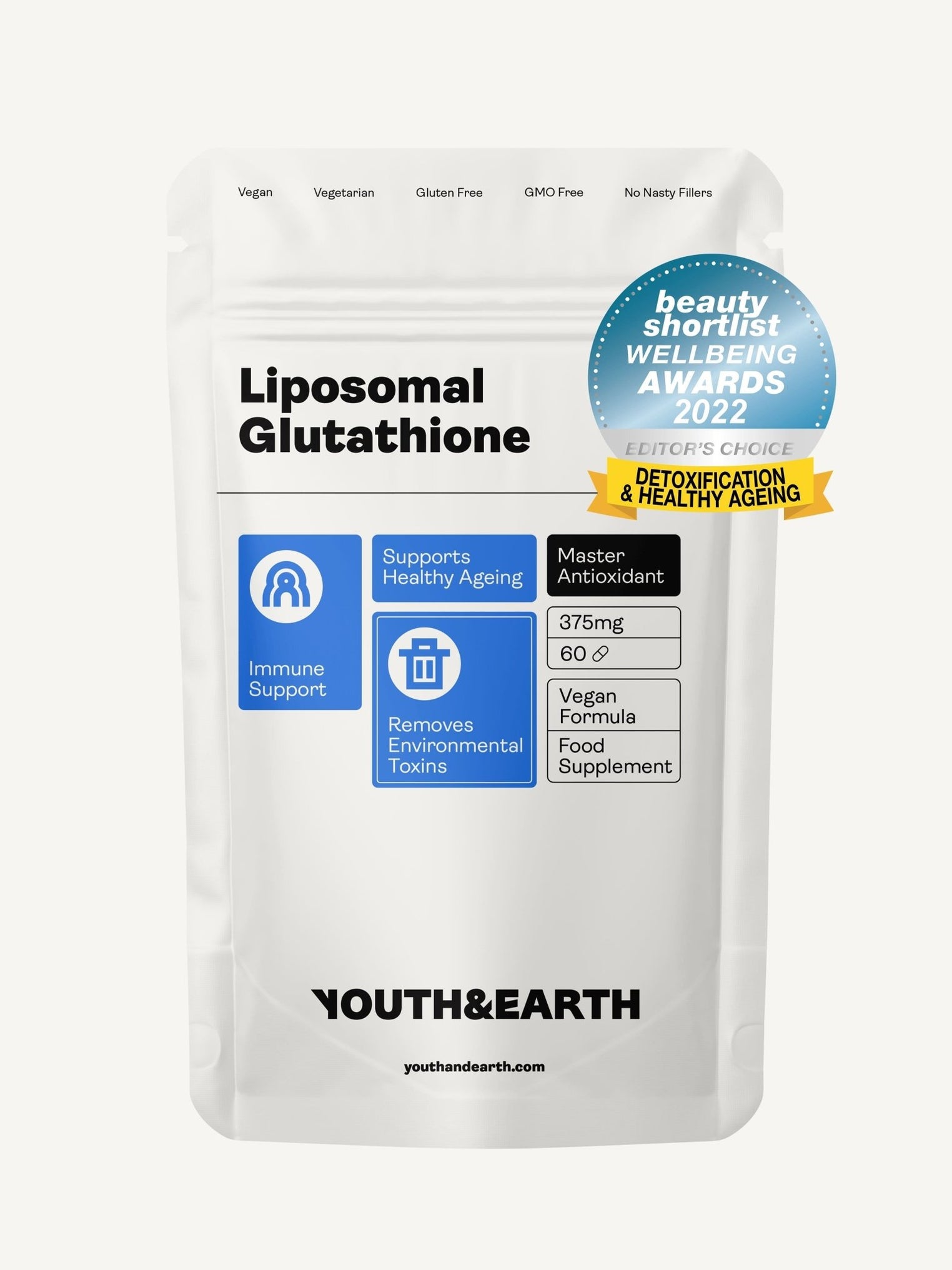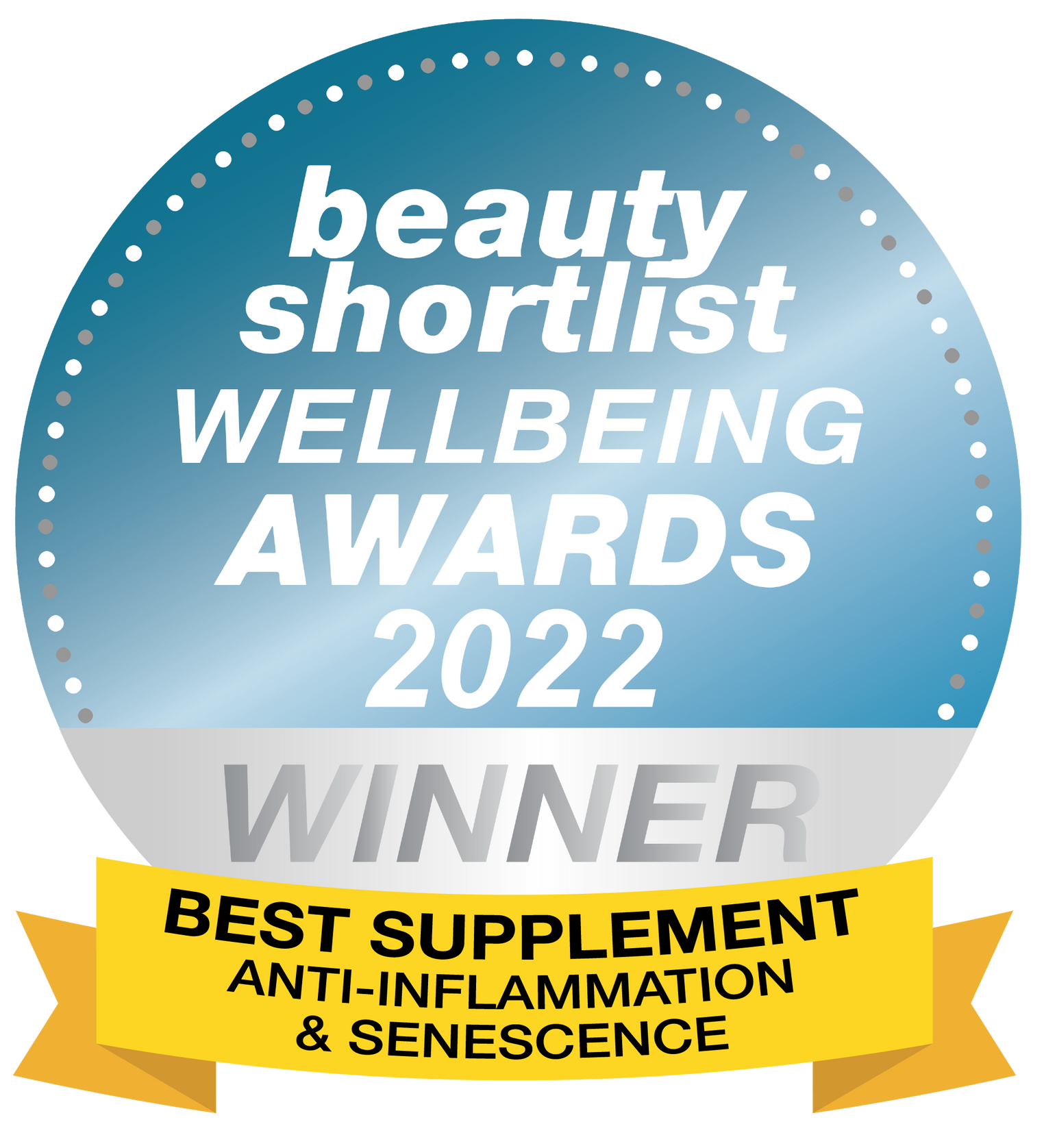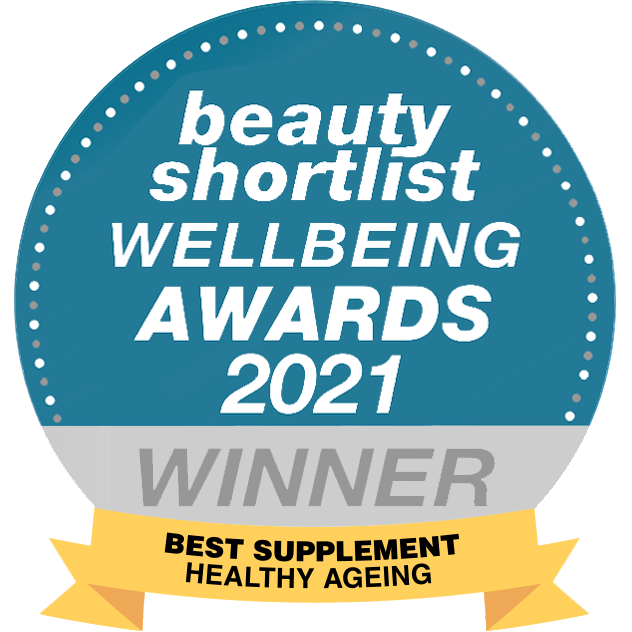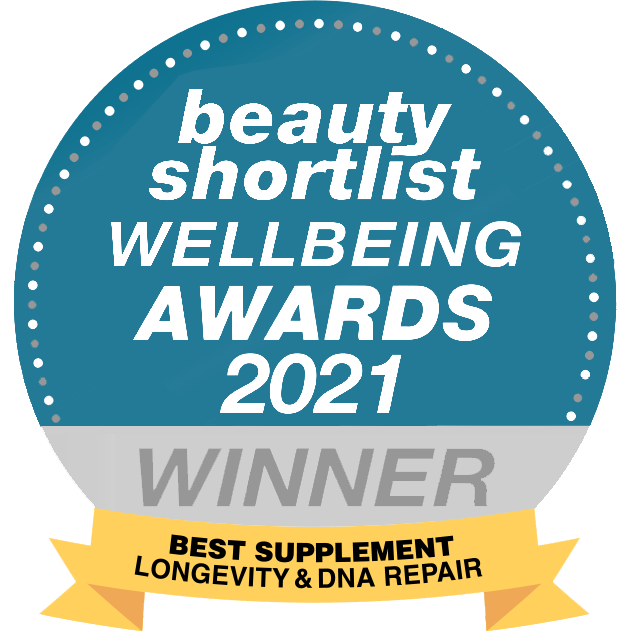Ever wondered what NAD+ is? Find out more about this anti-ageing molecule and how you can boost its levels to increase your energy and feel young again.

Ageing seems like an inevitable process and every year people spend billions on anti-ageing products. However, most of these products claim to reverse the signs of ageing by applying the product externally to the skin, instead of addressing it from within the body.
But did you know that it’s possible to revitalise your body and slow down the degeneration that tends to come with age? In this post, we’ll be exploring NAD, it’s precursor NMN (β-Nicotinamide Mononucleotide), and how they are related to the longevity gene.
You might also like:
What is NMN and Are There Any Side Effects?
What is Nicotinamide Adenine Dinucleotide?
Short for Nicotinamide Adenine Dinucleotide, NAD, was discovered in 1906 and is a coenzyme found in all our living cells.
NAD is one of the earliest molecules on earth and is found in every cell of the body. It plays a key role in protecting the major organs of the body. So as NAD declines, so does that protection.
NAD exists in two forms: NADH and NAD+.
According to experts, NADH helps in improving mental clarity, concentration, memory, and alertness, while NAD+ is responsible for maintaining a healthy neurological system and healthy internal organs.
It’s true that exercising regularly and maintaining a healthy diet improves the quality of our lives. However, in the current world with its fast-paced lifestyle, it’s not always possible to get enough time to exercise regularly and maintain good eating habits.
Whether you exercise and maintain good eating habits or not (and, of course, we encourage you to exercise and have healthy eating habits) increasing NAD+ levels in your body will boost the quality of your life.
WHAT DOES NAD+ DO?
Apart from converting nutrients into ATP, NAD+ also works hand in hand with proteins to execute and provide fuel for the following vital biological processes:
-
Calcium signaling—calcium is a vital second messenger that regulates a wide range of cellular activities such as secretion, fertilization, cell migration, and neurotransmission.
-
DNA repair—this is the process through which cells identify and repair damaged DNA molecules.
-
Gene expression—the process through which the instructions in the human DNA gets converted or transformed into a functional product such as a protein which plays a major role in cells functioning correctly.
-
Mitochondrial function—which is the normal production of energy in our bodies.
-
Epigenetic modifications—these are stable alterations in cellular function and gene expression with the original DNA sequence not undergoing any changes.
-
Maintaining chromosomal integrity—the normal functioning of the body’s chromosomes.
-
Post-translational modifications—these are vital components in cell signaling, for example when prohormones are converted to hormones.
Some of the proteins used during these processes are referred to as sirtuins (SIRT). They are responsible for regulating cell health, turning anti-ageing genes on and off, helping repair damaged DNA, and also regulating metabolism. In short, activating
SIRT is one of the pathways to longevity.
If you’re interested in longevity, you might enjoy reading: Lessons From the Blue Zones - Feel Younger for Longer.
To function normally and efficiently, these sirtuins require NAD+. Unfortunately, NAD+ is continually being used up and converted to NADH. This means that NAD+ must be continuously synthesised within our bodies.
However, here’s the issue: as we age, our bodies synthesise decreasing amounts of NAD+ and, as we mentioned earlier, NAD+ is responsible for protecting our vital body organs as well as boosting the production of energy in our bodies. The decline of NAD+ in our bodies means that we have less NAD and this leads to age-related complications and premature ageing.
HOW DOES NAD+ INFLUENCE AGEING AND HEALTH?
Over the last few years, NAD+ has become the center of research because of its emerging role in controlling vital biological functions. Without NAD, we simply can’t exist. Here are some of the latest findings that show just how important this coenzyme is.
In a 2016 study, it was discovered that NAD+ precursors helped improve muscle function in degenerative muscles.
In 2017, a study showed that an NAD+ precursors supplement helped improve DNA damage repair. A 2018 study also showed that NAD+ precursors helped improve cognitive function.
These are a few of the latest findings. There is ongoing research as scientists continue looking for more ways that NAD+ precursors can influence human health and especially ageing.
WHAT ARE NAD+ PRECURSORS WORK AND WHAT ROLE DO THEY PLAY?
Your body can manufacture NAD+ in many ways by using molecules called NAD+ precursors. Each precursor follows a different route or way to be converted into NAD+. As an analogy, if you are traveling to London, you might use different modes of transport or routes to get the final destination. NAD+ precursors make use of natural pathways which all lead to the synthesis of NAD+.
Since the discovery of NAD+ in 1906, scientists have continued to research its benefits in the human body. For instance, in the 1900s, NAD precursors helped mitigate pellagra, a killer disease that had plagued South America. It was discovered that yeast and milk (both which contain NAD+ precursors) helped alleviate the symptoms.
Over the years and through intensive research, scientists have been able to identify NAD+ precursors such as β-Nicotinamide Mononucleotide (NMN).
What is NMN and why it is important?
As mentioned earlier, our bodies do not have an endless supply of NAD+. As we age, our NAD+ levels continue to decline.
In 2012, a study carried on human skin showed that NAD+ actually declined with age. In 2015, another study confirmed these claims by showing a decline in NAD+ levels in the human brain with age.
So, how can we maintain and increase NAD+ levels in our bodies? There are several ways to do so, including exercise, calorie restriction, and the regular consumption of fish and vegetables. You can also consider supplementing with the NAD+ precursor, NMN.
Being a precursor, NMN is converted into NAD+ and although it is readily available in different foods such as meat, fruits, and vegetables, the levels are very low which is why supplementation is beneficial.

What are the key benefits of NMN?
In recent years, NMNs potential to combat ageing has been heavily researched. According to experts, it helps boost NAD+ synthesis in multiple body tissues including adipose tissue, pancreas, heart, liver, skeletal muscle, eyes, blood vessels, and kidneys. There are several benefits to increasing the levels of NMN in your diet:
NMN helps maintain cellular energy levels
Many age-related complications can be traced back to a deficit in energy production.
NMN plays a vital role in the production of cellular energy since it boosts the synthesis of NAD+.
Maintaining NAD+ levels at an optimal level is of paramount importance since this compound helps improve the functioning of mitochondria. The boost in cellular energy production will give you a youthful appearance even as you grow older.
For more on cellular energy, read How Coenzyme Q10 Can Boost Your Healthspan.
NMN helps maintain the circulatory system
The circulatory system is responsible for carrying blood into and out of vital body organs and removing waste products from the body. It’s also responsible for the exchange of heat and nutrients.
However, as we age, we may experience chronic changes that may interfere with the density of our blood vessels. This means that, with time, our blood might not be flowing as freely as before, hence leading to premature ageing and other chronic diseases.
As the declining blood flow gets worse, we may experience loss of muscle mass. Loss of muscle mass is one of the contributing factors to low quality of life as we get older because it has an impact on mobility and daily functioning.
By increasing NAD+, NMN helps repair damaged DNA hence promoting the development of healthy blood vessels which slows down the degeneration.
In conclusion
As you can see, it’s possible to slow the degeneration that happens with ageing by increasing the levels of NAD+ in your body. NMN is a useful NAD+ precursor and its ability to mitigate age-related diseases and metabolic decline is unmatchable.
Are you wanting to revitalise yourself from within and slow down ageing? Look no further. Try our NMN supplements today and lead that active life that you’ve always wished for! Growing old should not be a punishment, but a blessing!
The content of this article is for informational purposes only. It’s not intended to be a substitute for professional medical advice, diagnosis, or treatment. Always seek the advice of your physician or health provider before starting a new health regime or program. Do not ignore medical advice or delay seeking it because of something you’ve read on this site or any Youth & Earth product.
















